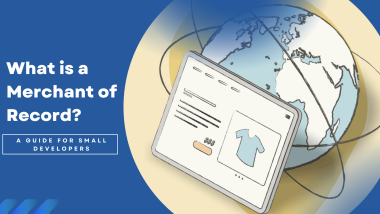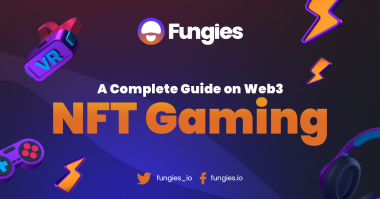In recent years, cloud gaming has emerged as a revolutionary technology that promises to reshape the gaming industry. By leveraging the power of cloud computing, gamers can now access and play high-quality games without the need for expensive hardware. This article delves into the world of cloud gaming, discussing its future prospects, benefits, and potential disadvantages.
I. Understanding Cloud Gaming:
Cloud gaming, also known as gaming on demand, is a technology that enables players to stream games directly to their devices over the internet, eliminating the need for physical game consoles or high-end PCs. The games are hosted on powerful servers in data centers, with players interacting with the game remotely through a streaming service.
II. The Future of Cloud Gaming:
- Accessibility and Convenience: Cloud gaming has the potential to democratize gaming by eliminating barriers to entry. As internet connectivity improves worldwide, players can access a vast library of games on various devices, including smartphones, tablets, and low-spec PCs. This accessibility is likely to attract a wider audience, including casual gamers who may not have invested in traditional gaming hardware.
- Enhanced Graphics and Performance: One of the key advantages of cloud gaming is the ability to leverage powerful server infrastructure. Cloud gaming platforms can provide ultra-high-definition graphics, faster loading times, and smooth gameplay, even on low-end devices. As technology advances, these platforms will continue to enhance the gaming experience, blurring the lines between local gaming and cloud gaming.
- Cross-Platform Gaming: Cloud gaming is inherently cross-platform, allowing gamers to seamlessly switch between devices without losing their progress. This feature empowers players to enjoy their favorite games on different platforms, fostering a more interconnected gaming community. Furthermore, cloud gaming also holds the potential to bridge the gap between console and PC gaming, as players can access exclusive titles regardless of their preferred hardware.
- Evolving Business Models: Cloud gaming is revolutionizing the traditional gaming business models. Subscription-based services like Xbox Game Pass, PlayStation Now, and Google Stadia offer gamers access to a wide range of games for a fixed monthly fee. This shift from physical game purchases to subscription-based models could reshape the economics of the gaming industry, opening up new revenue streams and creating opportunities for smaller game developers to reach larger audiences.
III. Benefits of Cloud Gaming:
- Cost-Effectiveness: Cloud gaming eliminates the need for expensive gaming hardware, reducing the upfront cost for players. Instead of purchasing consoles or high-end PCs, gamers can subscribe to cloud gaming services and play the latest games on affordable devices. This cost-effectiveness makes gaming more accessible to a wider demographic.
- Flexibility and Mobility: Cloud gaming allows players to enjoy their favorite games on the go. As long as they have a stable internet connection, gamers can stream their games to smartphones or tablets while traveling, on lunch breaks, or at a friend’s house. This flexibility and mobility add a new dimension to gaming, enabling players to fit their passion for gaming into their busy lifestyles.
- Easy Updates and Maintenance: With cloud gaming, game updates, patches, and bug fixes are handled on the server-side, relieving players of the hassle of manual downloads and installations. This streamlined process ensures that players always have access to the latest versions of their games without any additional effort.
IV. Disadvantages and Challenges of Cloud Gaming:
- Internet Connectivity and Latency: The success of cloud gaming heavily relies on stable and high-speed internet connections. In regions with poor infrastructure or limited internet access, the gaming experience may be hindered by latency, input lag, and occasional disruptions. Additionally, players who exceed their data caps or have limited bandwidth may face challenges while streaming games.
- Dependence on Servers and Service Providers: Cloud gaming is reliant on the performance and availability of the servers and service providers. Outages, server maintenance, or the discontinuation of a particular platform can impact the player’s ability to access and enjoy their games. This dependence on third-party infrastructure can lead to temporary or permanent limitations in the gaming experience.
- Ownership and Digital Rights: With cloud gaming, players do not physically own the games they play. They rely on the continued availability of the cloud gaming service to access their purchased games. This raises concerns about digital rights, as players may lose access to their games if the service is discontinued or if they decide to switch platforms.
- Privacy and Data Security: Cloud gaming involves streaming gameplay data back and forth between the player’s device and the servers. This data exchange raises concerns about privacy and data security. Players must trust the service providers to handle their personal information and gameplay data responsibly, as any security breach can result in the compromise of sensitive data.
Conclusion
Cloud gaming is an innovative technology that holds immense potential for the future of gaming. Its accessibility, enhanced performance, cross-platform capabilities, and evolving business models are likely to reshape the gaming industry. However, challenges such as internet connectivity, dependence on service providers, ownership concerns, and data security need to be addressed to fully realize the benefits of cloud gaming. As technology advances and infrastructure improves, cloud gaming will continue to evolve, bringing exciting opportunities and experiences to gamers worldwide.





